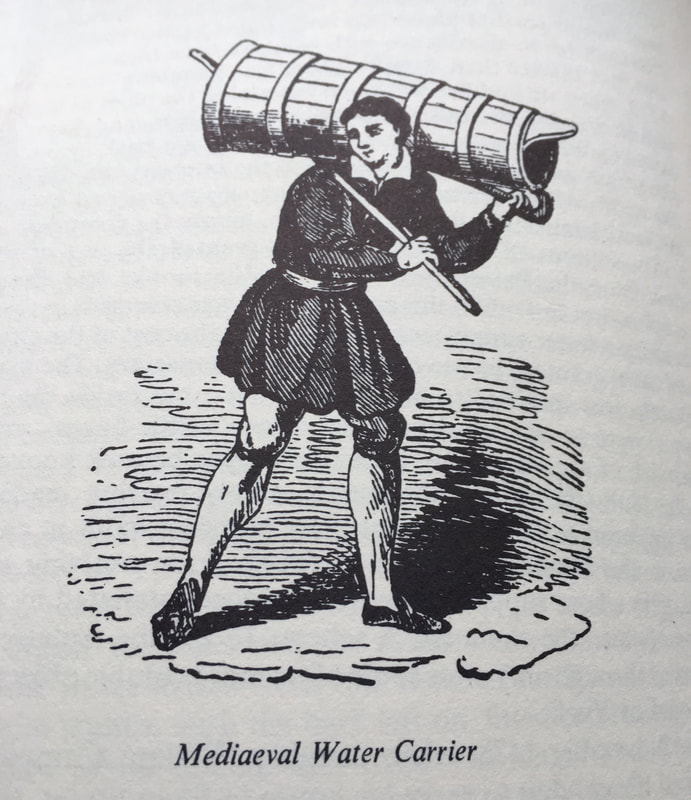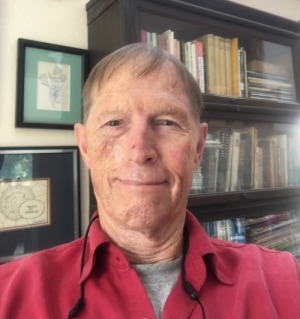|
The city of Cape Town, South Africa, is about to be the first major city in the world to run out of water. The author read in a BBC article by Gabriella Mulligan that there have been attempts to conserve and the populace has gone through major cut-backs, but it was just recently informed that water service may soon be shut off to everyone but ‘absolutely’ necessary services, like hospitals and security services, etc. According to that source Cape Town (and surrounding environs) have been experiencing a very fierce drought for three years and counting. Officials there are now considering an even more draconian ration of 6.6 gallons per day per person as the reservoirs race to the mandatory cut off point of 13% capacity. At this point the rations could go even to single liters-per-person, per day, if the drought continues. According to a French media: City Taps report, in the African city of Niger, smart water meters are being installed that shut the water off if your cell-enabled account goes ‘negative’. (Pete the Plumber will wager those ‘smart’ water-meters will proliferate worldwide.) Of course those enclaves’s ‘well-to-do’ will have privately contracted water delivery services. (Speak’n of that, the author many years ago worked on a ‘desert mansion’ being built by a very wealthy, ‘water-minded’ gentleman who wanted some level of insurance to disruption of utility service. Nestled in a gap between huge boulders at the edge of the property, curbside, stood a beefy, gravity-operated stanchion (both fill and vent) for a buried, stainless steel 6-in. pipe. This pipe ran 100-plus ft. to a 6000 gallon, stainless steel storage tank, in the ground, beneath the structure. (This extravagant but elegant feature comprised an emergency, separate water system from the utility supplied Main Building Supply system.) Tank-serving pumps, on a separate electrical system and through a separate water distribution system, also served each fixture. Wanna guess this owner’s choice for water delivery service? None other than Sparklett’s Co.) Back In The Real World Many other nations could see Cape Town’s predicament (sooner than expected) with the evermore accelerating climate change events we are experiencing. The BBC’s science editor, Paul Rincon writes that by 2025 UN experts expect 14% of the world to “encounter water scarcity.” This plumber has known from Day One which aspect of modern plumbing is the most integral to our present standard. He thinks that if/when that dire, “in liters” rationing becomes reality, those of us still present will find that dealing with human waste will be modern society’s biggest challenge, ahead of finding sufficient fresh water at ‘survival’ levels. Sewage treatment plants require a lot of water and real progress has been achieved with waste water re-use. But if/when there’s no water to serve toilets, how will we handle this problem? (Photo #1) Of course the probable very first step will be ‘porta-potty’ rentals. (Will that be a business to be in?) But for the vast majority it will not suffice. When you have huge metropolitan areas without sufficient water to provide ‘solid waste’ sanitary conditions, what pressures will come to bear on the populace. Everyone needs to poop. Backyard out-houses will only get one “so far” until cholera and other old nemeses are again a fact of life. Rarely does one think about one’s ‘privilege’ of having a private, utility-supplied sanitary system. (Except, the Homeless are a growing human sector faced with this reality.) According to the World Health Organization, at the last count, 27% of the world’s population (1.9 billion) used private facilities connected to sewers. The WHO: Some 2.3 billion souls still do not have toilets. The BBC: 850 million people lack access to safe drinking water. According to the BBC’s Mulligan, in The ‘Developing’ world, 80% of fresh water supplies impounded, are lost to leakage. For the U.S. this estimate is up to 50%. (And I read in an AWWA (American Water Works Association) bulletin, that American water utilities suffered 6.1 million LSL’s (Leaking Service Lines) in 2017. STRESS KILLS Folks (in general) still get their ‘shorts-in-a-knot’ enough, over the rare power outage. Wait until every person in-the-joint has to deal with disposing of their own human waste, daily, or even oftener. That will be the day the “””” hits the fan. The author has lived off-grid ‘without facilities’ for extended periods. But we all can’t have my beloved, fancy, composting out-houses because first there would simply not be enough room for them, irrespective of health issues due to crowding. The scary part comes when there’ll be no water to even pour down toilets to make them function. Cape Town officials tell its inhabitants that they think they will have enough to ‘stay alive’. But what kind of “staying alive” would that feel (and smell) like? The author has some experience with composting toilets. The most efficient, power required versions are too bulky to install in built space. Their framing and use requirements need to be considered in the framing stage of the structure. Other composting designs both power-assisted and purely anaerobic, which fit where existing fixtures are set, can be finicky in their performance. Such basic issues as ambient temperatures and drafts pose obstacles to efficiency. And save some exotic, water supplied/pump ejected, ‘up’-flushing bowls, every other toilet installed, despite the type, requires a vent. And, the venting demands for most un-planned for, composting, non-powered models would preclude them from application because of unsuitability, based upon the existing framing in each and every structure. Providing for this vent, then, can be a nightmare. A “Game Stopper.” O. K. What would/could happen? Throughout the histories of the city, there have been “water bearers”, (Photo #2) who, with the use of a pole for shoulder and containers, brought water (and many other necessities) to your door, for a price. And there were also those* who made a living hauling away the nightly spoils of ‘chamber-pots.’ (Photo #3) (*Gongfermours or Gong farmers). Does history repeat itself? What are our odds? Well, no worries for this antique, but like the old song: “……Que Sera, Sera……”(whatever will be, will be). Will the mobile sewage disposal business be a good investment in the future? The author lived and worked for over 30 years (20 yrs. raising a family), right on or very near a major earthquake fault. (Once, two of his young, middle-school aged children, swimming at the community’s plus-Olympic sized pool, had some real excitement. A 6+ quake sent one of them from the second of four lanes onto the deck and the other found herself moved over four lanes, in the time of taking a breath.) The Author’s Pet Nightmare A majority amount of the water requirements for the 7 million inhabitants of the greater Bay Area metropolitan area depend upon two, large, old, high-maintenance tunnels crossing a major, active, earthquake fault in distant mountains. If these conduits suffered a rupture and failed, the problems of dealing with human waste would be almost as dire as fresh water for drinking. Forget bathing. Perfume sellers would have to go back centuries to find their trade in such a bull market. In the not so far off future maybe a smart billionaire or two will see ‘possibilities’ for fresh water super tankers. And, municipal “Sanitary Car Lines” might flourish, and have their own schedules just like buses. (Bathroom ‘trains’). In this old plumber’s opinion, it doesn’t appear too likely that the humans presently alive would/will be able to accomplish what’s required to eventually “turn this ship around” and avoid the wreck of wrecks: back to the Bronze Age infrastructure of human hygiene. The author fondly recalls another red flag, one of his early boyhood. On family camping trips his father would hang a red flag in camp to which one carried to and placed on the path at the improvised ‘comfort station’ to announce occupancy. Could my old camping memories or Medieval reality ever become a future city dwellers new paradigm? Que Sera, Sera….
0 Comments
Your comment will be posted after it is approved.
Leave a Reply. |
Author
Peter Hemp is a San Francisco East Bay residential plumber and plumbing author and former R & D steam vehicle plumber. His hobbies are ocean kayaking and touring the Left Coast by bicycle. Archives
September 2021
Categories |
|
|
Copyright © 2017 - 2022
All Rights Reserved
All Rights Reserved






 RSS Feed
RSS Feed